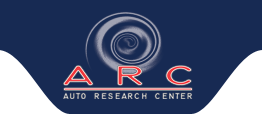SOFTWARE

ELEMENTS CFD SOFTWARE SUITE
ELEMENTS is a CFD software CAE suite built for motorsports and the transportation industry. Created and coded by Streamline Solutions, a joint venture between ARC and ENGYS Ltd. ELEMENTS offers unprecedented advantages over existing CFD CAE products for motorsports, production cars, commercial trucking and bicycle analysis. By using ARC's unique array of specialized testing capabilities, ELEMENTS has been validated on over 100+ models using physical data from the ARC rolling road wind tunnel and other full scale testing.
ELEMENTS covers five major applications areas: - Aerodynamics
- Underhood thermal management
- HVAC and cabin comfort
- Aeroacustics
- Soiling and hydrodynamics
| 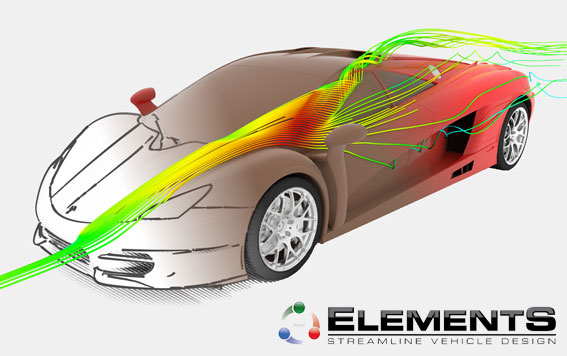
| 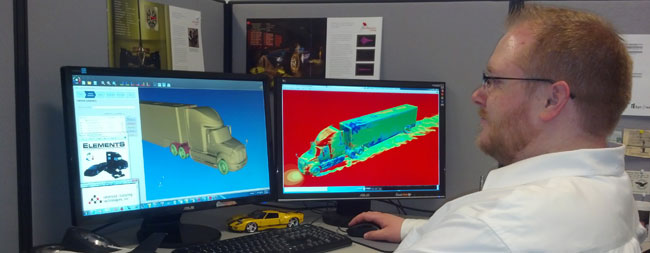 | ELEMENTS offers a cost-effective solution that combines the best of vehicle design simulation practices, all within an easy to use GUI that requires no third party software. It is powered by a custom code based around the OpenFOAM® library. ELEMENTS allows stylists, engineers, aerodynamicists and management to use it and will allow companies to reach a complete design package faster, improve vehicle efficiency and lower costs.
Main features of ELEMENTS are: - Modular GUI design to cover all major application areas
- Fast setup wizard to help select the right CFD solver
- Advanced Hex-dominant mesh with minimal CAD or STL cleanup
- Post-processing designed specifically for automotive purposes
| Read more about ELEMENTS at the microsite: http://elements.streamline-cae.com
ARC uses ELEMENTS for all customer based CFD projects. ELEMENTS is also available for purchase at an affordable price, contact ARC today via email or by calling 317-291-8600.
|

ELEMENTS CFD ADJOINT SOLVERELEMENTS also has an adjoint solver, it allows for a more efficient way to optimize designs, while testing more variables than a typical parametric optimization. Most adjoints use 1st order accuracy (poor), whereas ELEMENTS Adjoint utilizes 2nd order accuracy (better), or even a quasi-transient approach (best), to deliver better predictions for improvements. Adjoint is the optimal solver to use for internal flows and shape optimization. Using sophisticated flexible modeling techniques, the ajoint automatically morphs to the best shape for the targets. For example, shape optimization takes the exterior of a car and shows whether you should push or pull on the surface to improve a given parameter, or set of parameters (drag, downforce, efficiency, balance, etc.). This delivers in a single run what would take many hundreds, or thousands, of CFD runs to deliver using traditional parametric techniques. To start using the Adjoint solver to lower your design time and opitmize body and duct shapes faster, contact ARC today via email or by calling 317-291-8600.
| 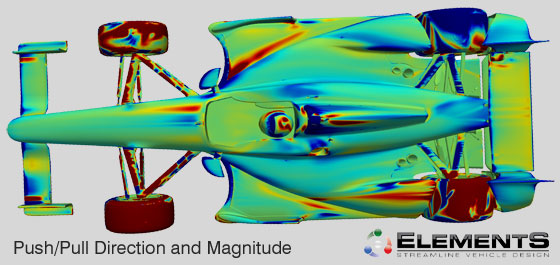
|
START USING CFD TODAYHave ARC perform CFD analysis for you or to purchase a copy of ELEMENTS, contact ARC via e-mail or by phone at 317-291-8600.
ARC's eLap is a static vehicle performance simulation software for high performance and motorsport use. The user is able to load in existing track profiles or create new ones using eTrack, located within eLap, enter vehicle dynamics information and optimize the car's suspension and aerodynamic setup to lower lap times. It features a flexible workspace that can be tailored for many different types of vehicles. This software will take standard inputs from all ARC facilities to allow for use of your most accurate and latest data. Because of eLap's quick run times, it is an excellent trackside tool. Race Series Partnerships:
Due to the always changing racing environment, racing series sometime find it necessary to control certain costs, including developmental costs. Because simulation is a constantly growing endeavor, ARC allows for partnering with individual racing series to offer a series the ability to control simulation costs. How does this work? eLap has the ability to input special vehicle criteria into the code and then keep it locked and hidden from the end user. This allows for a series to input sensitive information, such as engine specifics or tire information, without violating existing manufacturer agreements. By a series having a simulation that has the most accurate and “harder to get” data, this will force the series participants to use the series' own simulation software and potentially eliminate higher cost simulation programs. This gives direct control to the series with regard to how simulation will grow in their series, which allows for direct cost control. This software has been used in many levels of motorsports: IndyCar, USAC, F3, Australian Tour Cars, and even for Track Design. Contact ARC via e-mail or phone at 317-291-8600 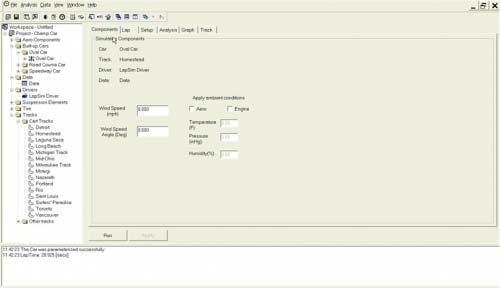 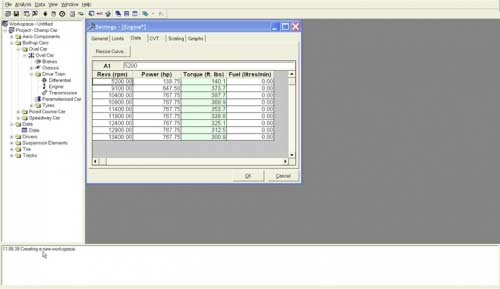
ARC's RHA or Ride Handling Analysis was written to complement the 7-post testing, but has become its own separate entity. In every form of testing, having a method to have analysis of results easier is desired and is the reason ARC developed RHA. RHA can easily be customized for difference types of data analysis. Contact ARC to see how RHA can help you make sense of your data. Contact ARC via e-mail or phone at 317-291-8600 to learn more about RHA. 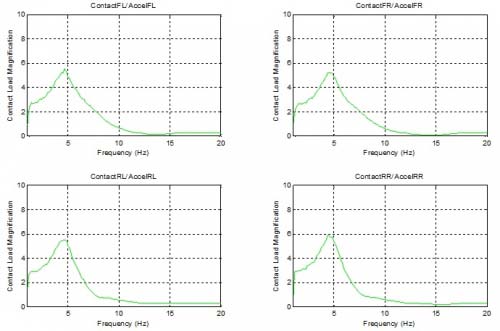 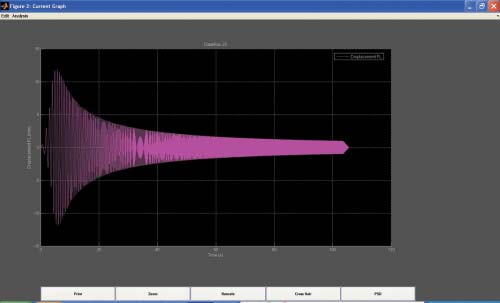
To complement physical 7-post shaker rig testing, ARC has developed a virtual 7-Post software. The virtual 7-Post simulates each of the shaker rig posts to simulate road loading and aerodynamic loading conditions. The software offers something for all levels of racing and production car users, from tuners to OEMs. The virtual 7-Post uses varying levels of inputs about the vehicle to produce results. Tuners who have basic information about the chassis setup of their vehicles can produce useful results with little effort, while OEM and professional race teams can enter detailed chassis information to further their understanding of how their vehicle performs. Contact ARC via e-mail or phone at 317-291-8600 to purchase a copy of the virtual 7-Post.
|











